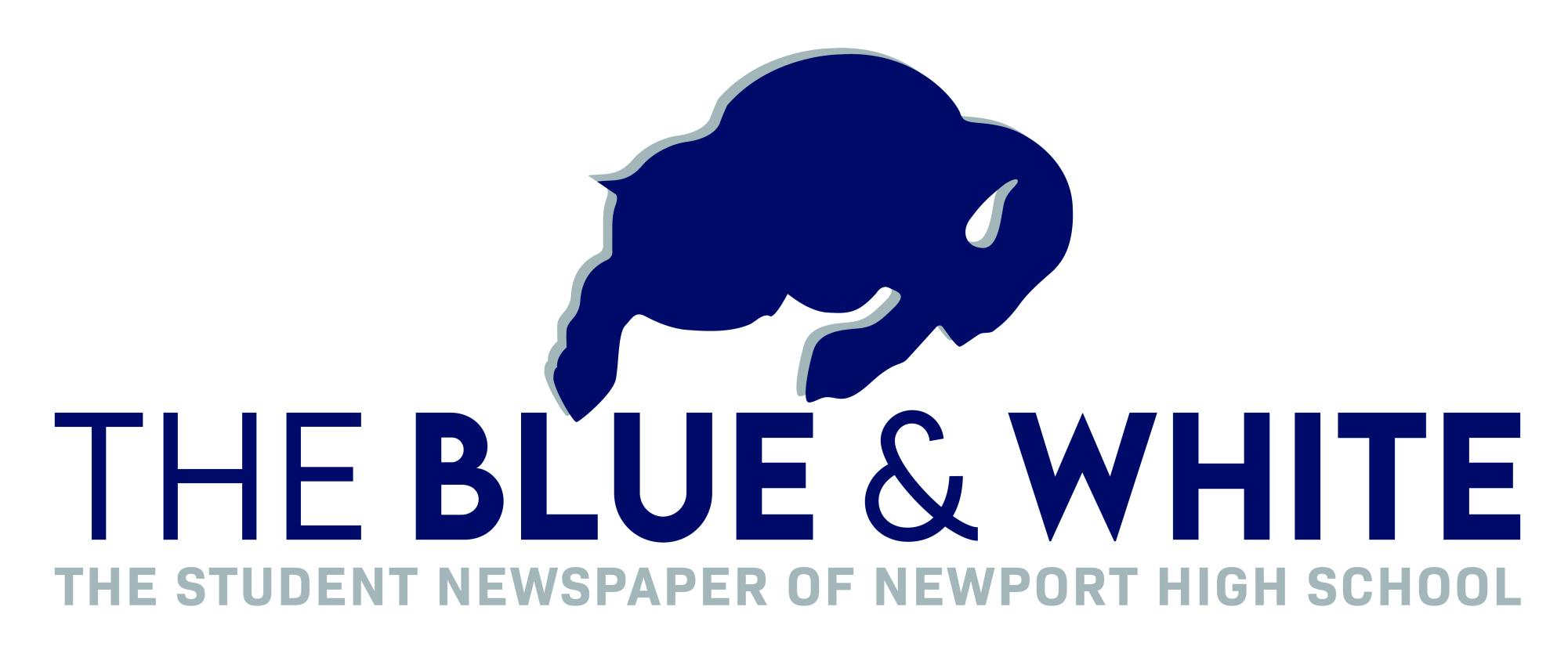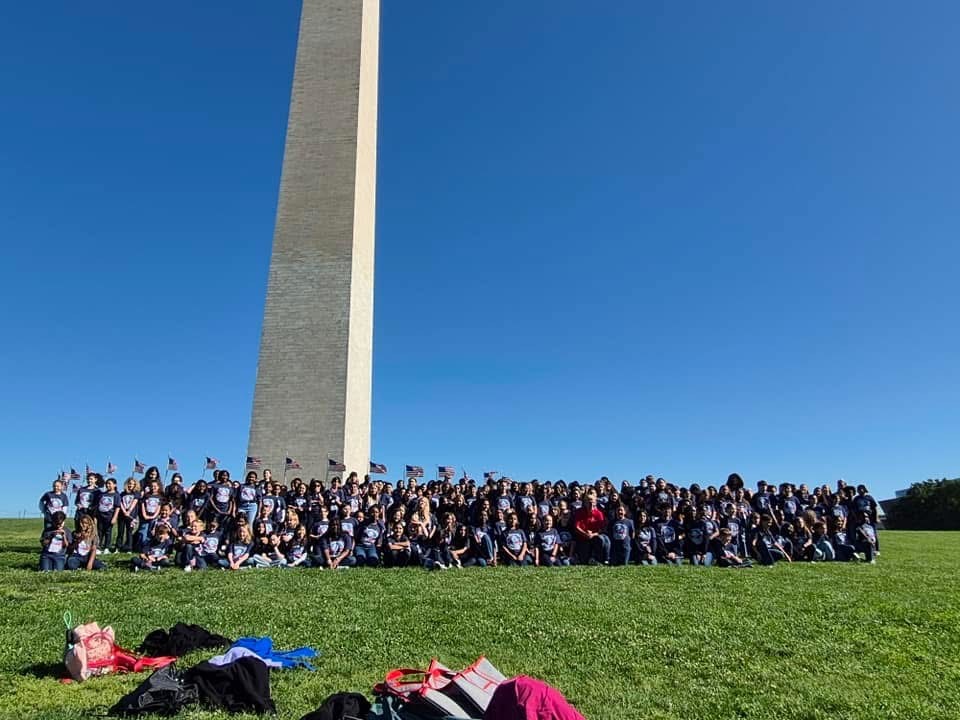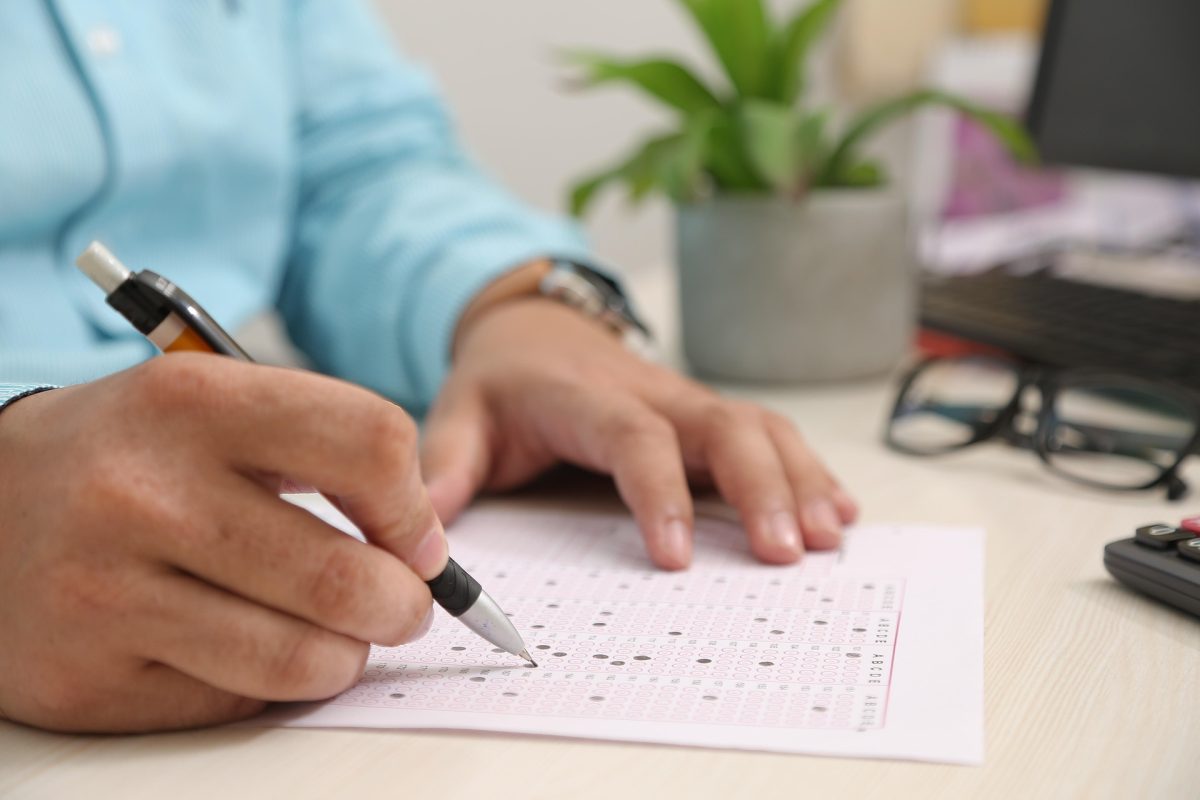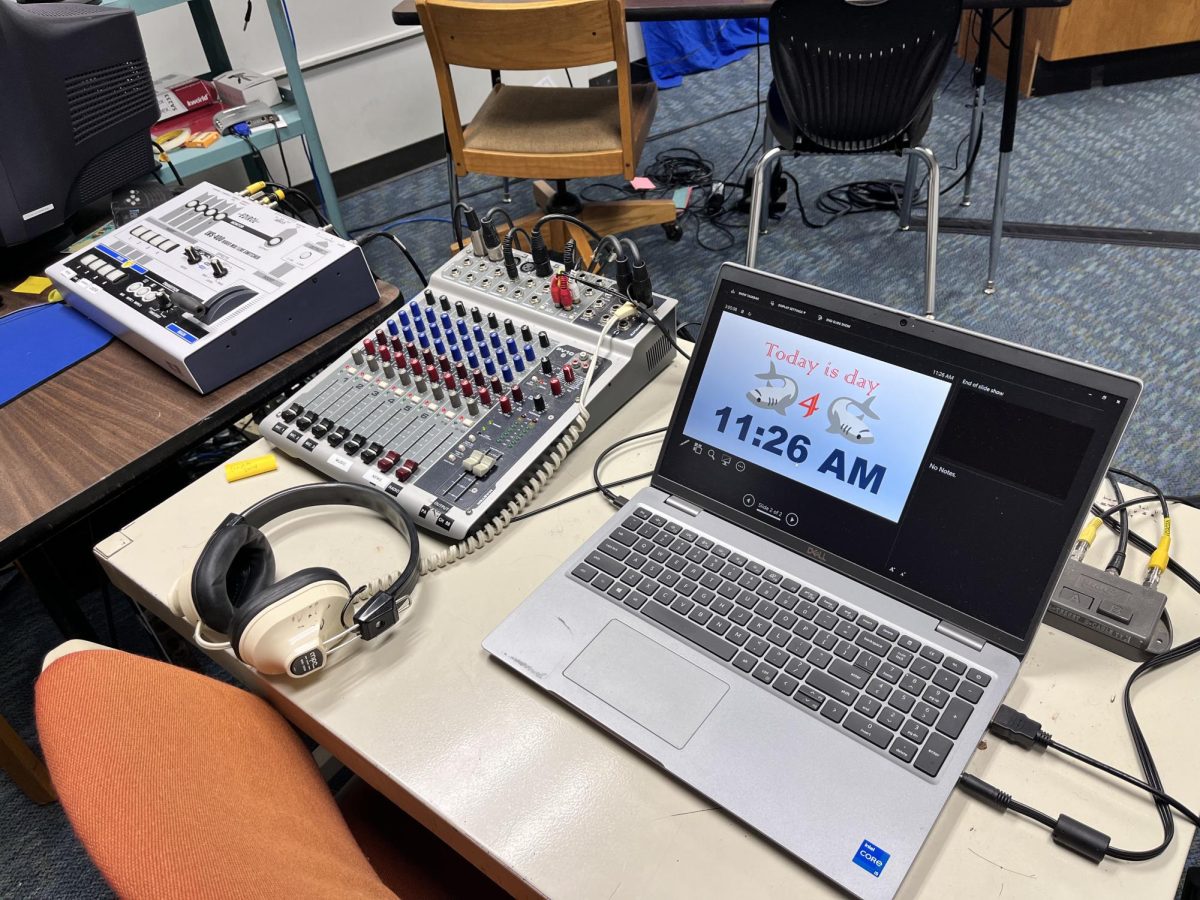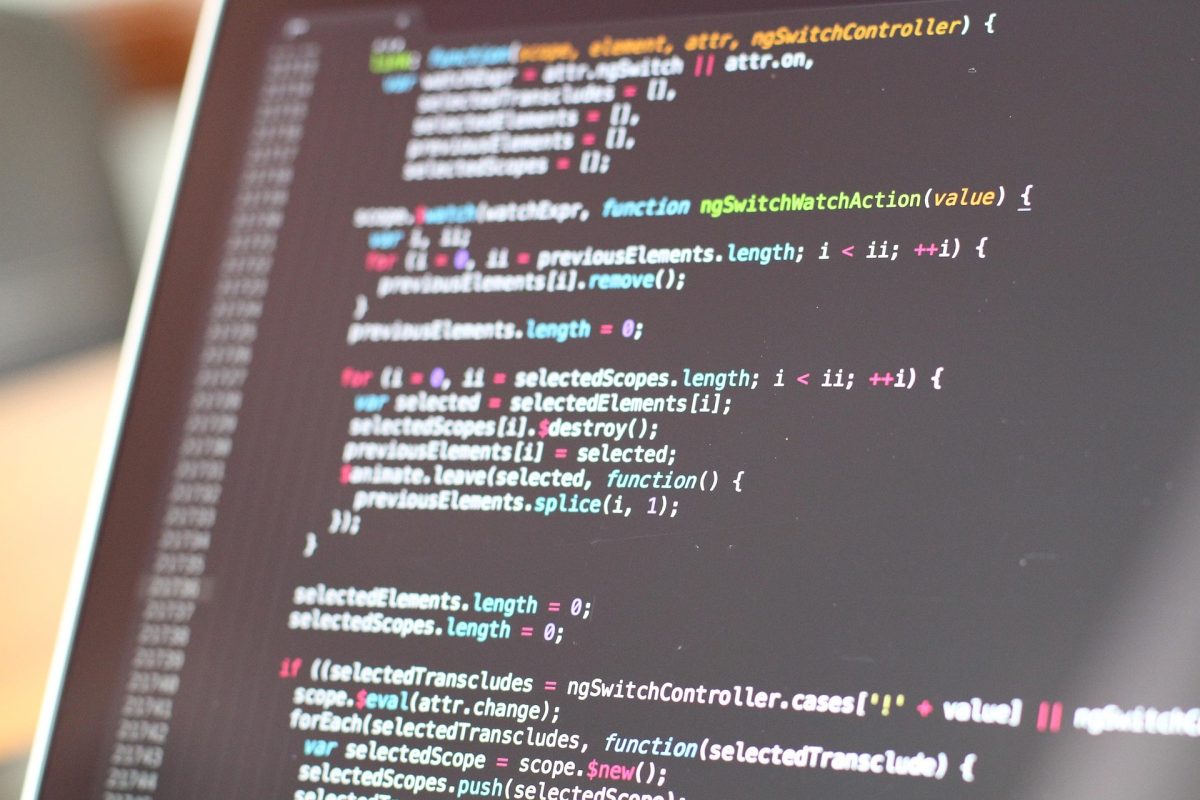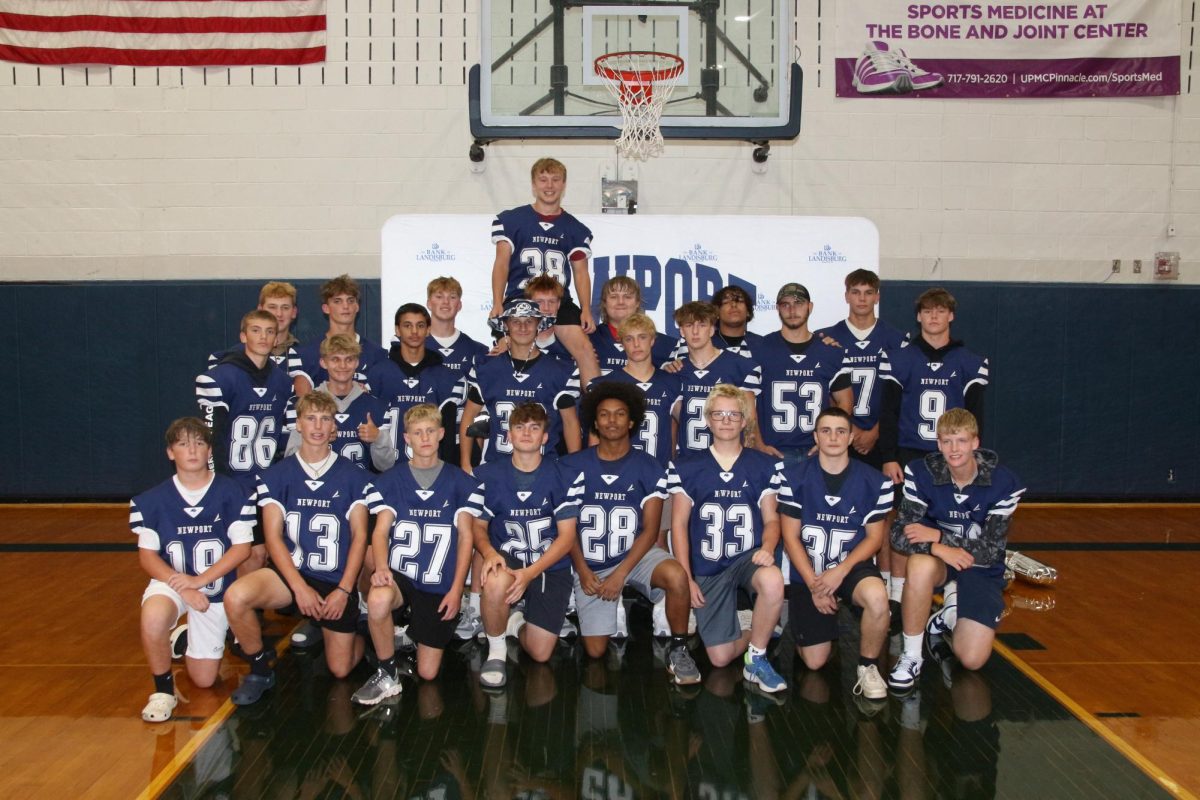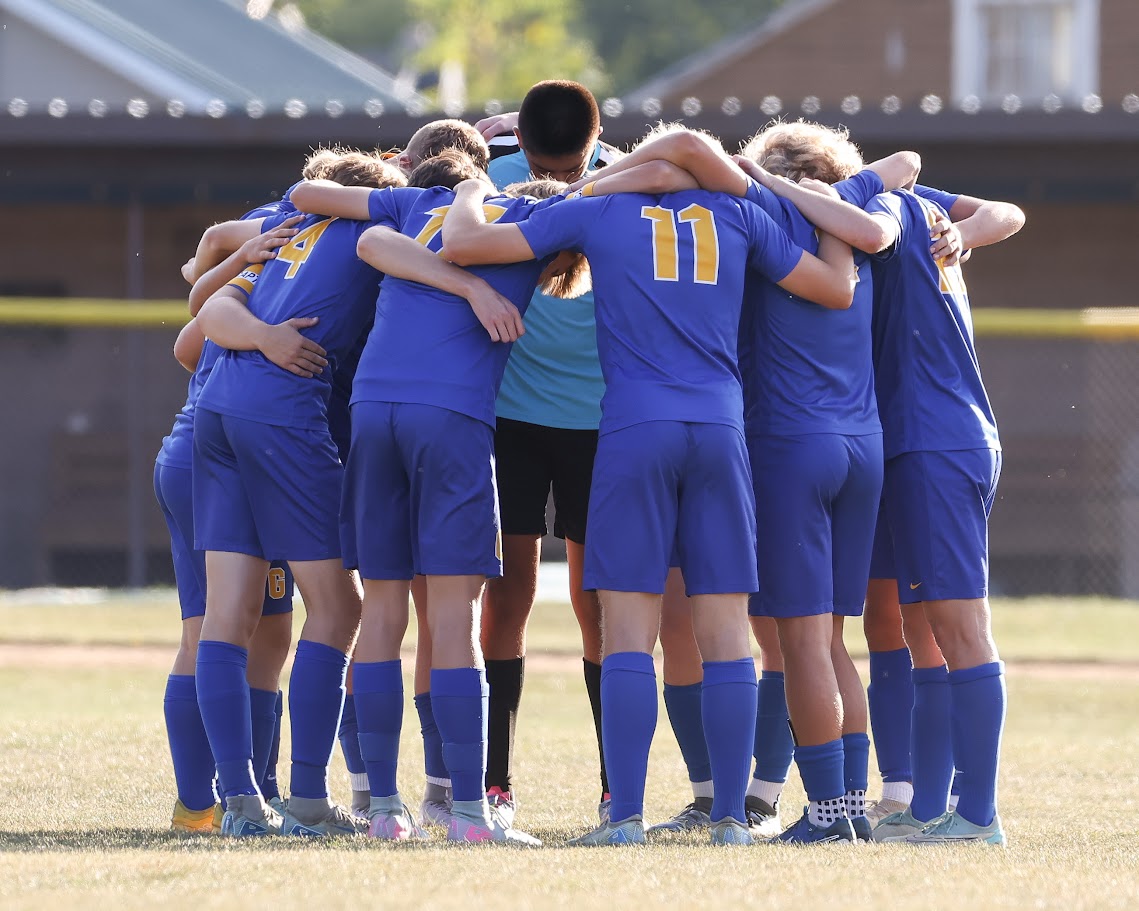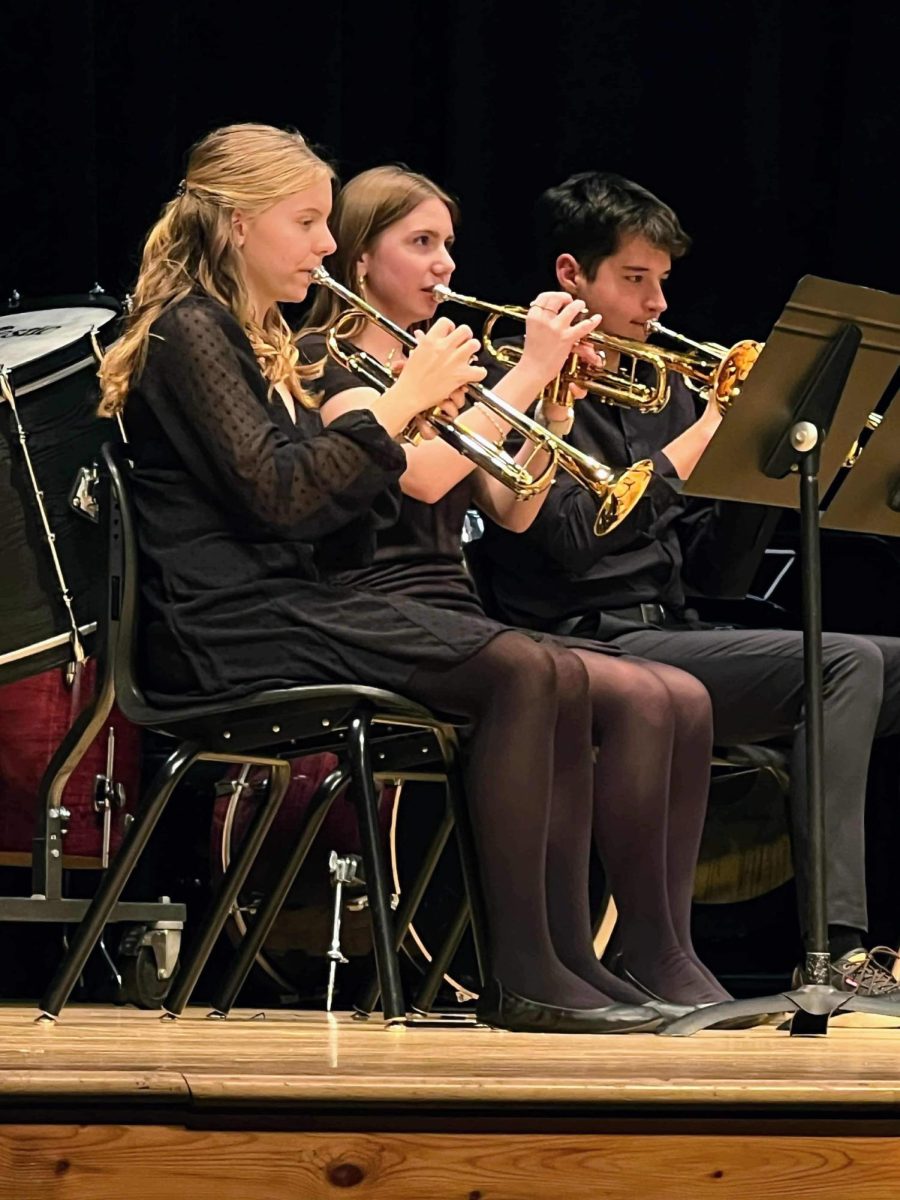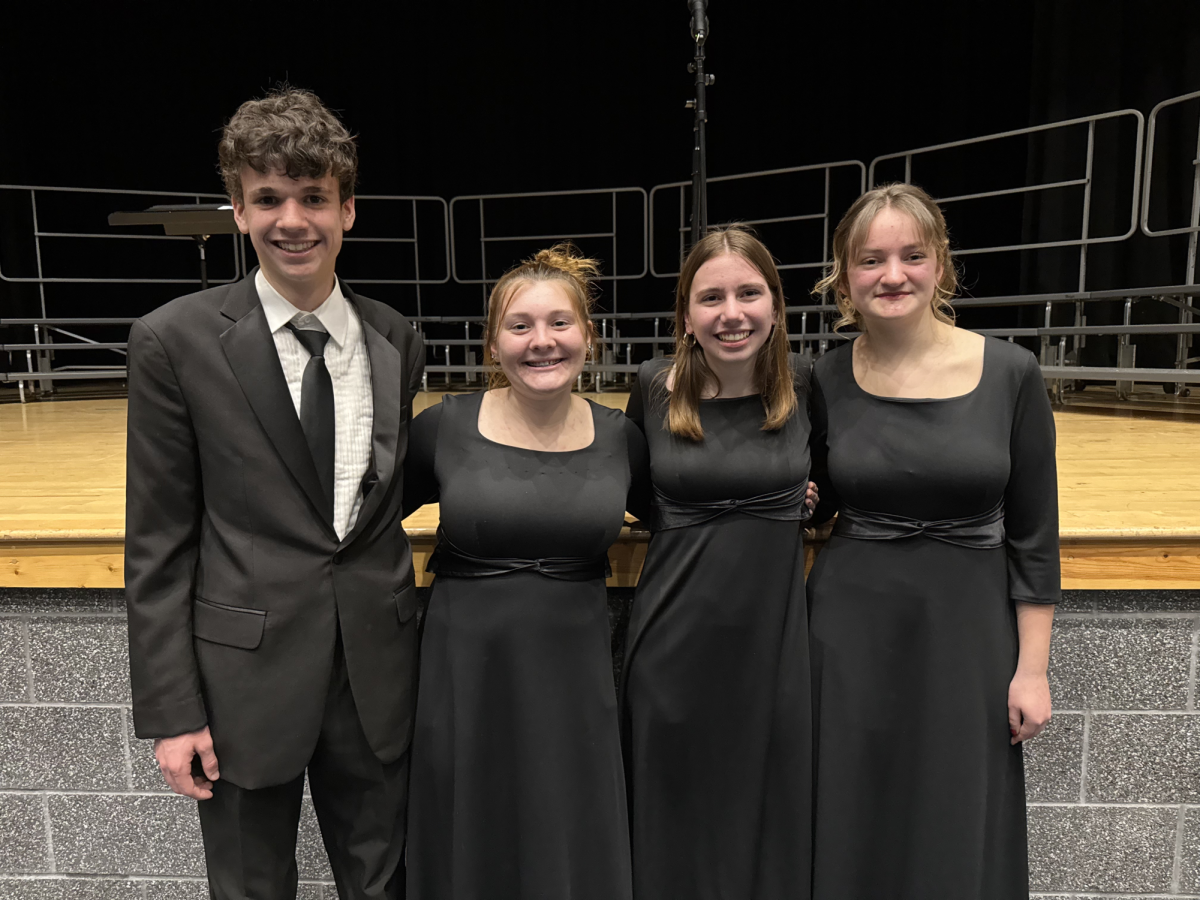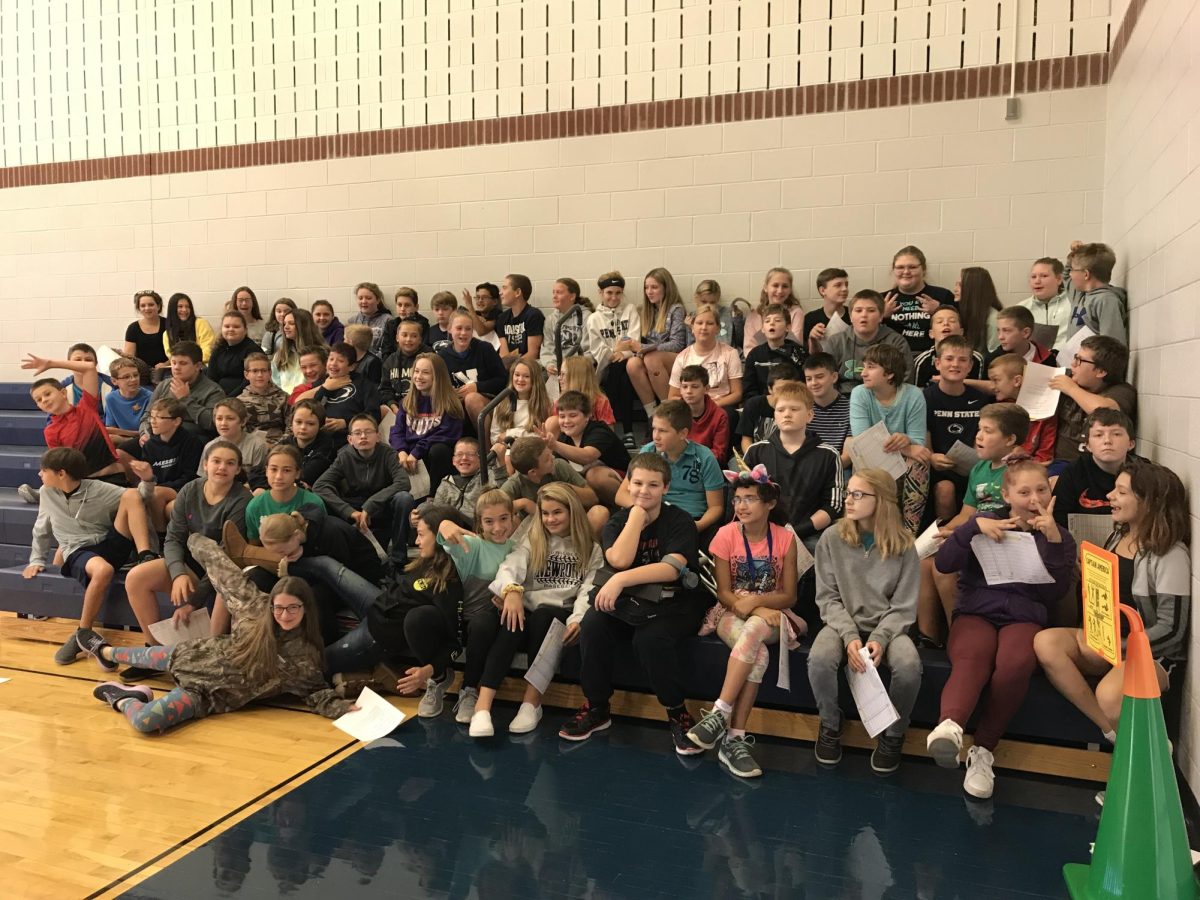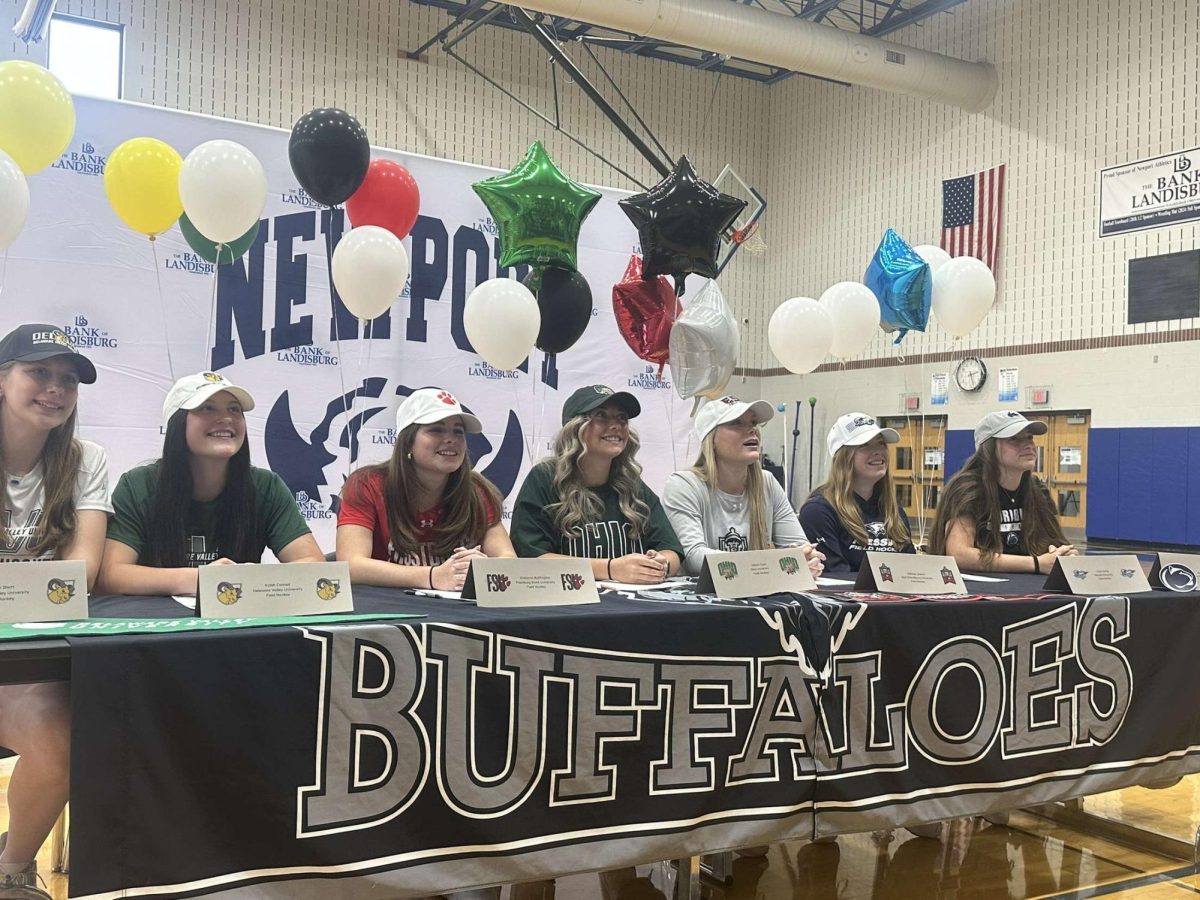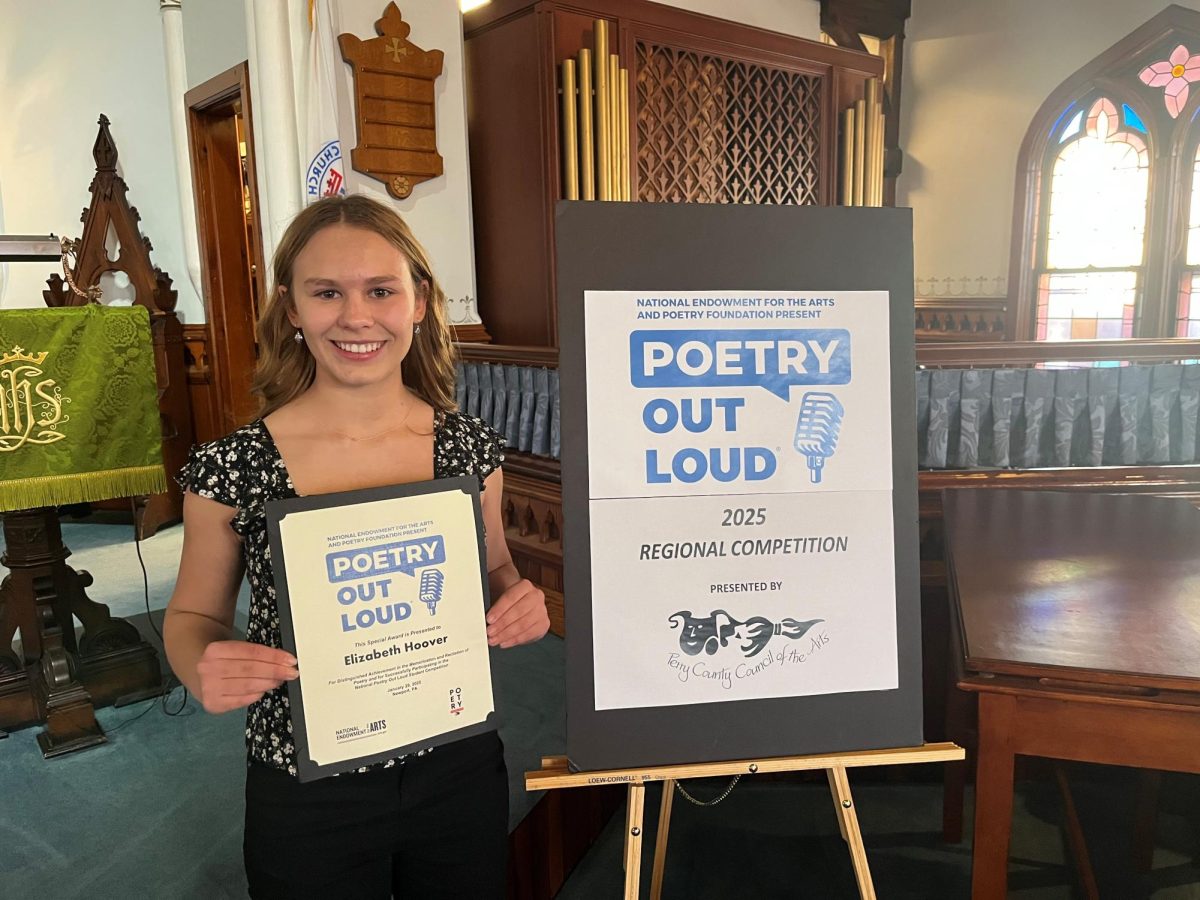If I could only give one piece of advice to the underclassmen at Newport, I would remind them to enjoy their time in high school. I would say that they shouldn’t obsess over grades or class rank, that they should not stress over things when they are beyond their control, that they should let certain things go. I would suggest that they constantly be doing something, whether it be a sport, a club, or anything else, but caution that that thing definitely should not always be schoolwork.
That’s my most important piece of advice. As someone who did schoolwork (almost) exclusively in high school, I say that you shouldn’t let that be your only focus. Value your education, of course. Get good grades if you can, pay attention in class, don’t procrastinate, yadda yadda yadda. Let your schoolwork be your main focus, even. But definitely don’t let it be your only focus.
This past year has been the best of my high school career. It hasn’t been the easiest, nor the most difficult, not the most relaxed, nor the busiest. Really, it has just been the most fun and the most interesting. I have made real memories this year, a lot of them, most of them pretty good.
It took me three years to find the balance between things I have to do and things I want to do. In my case, the have-tos were school related and the want-tos were, well, a whole lot else. The only reason I found that balance was because I sorta ran out of things I had to do this year. I’m lucky I did, because it’s forced me to do things that I want to do.
This is to say, don’t just do things you feel you have to do. That’s lame, and, honestly, you probably don’t have to do the things you think you have to do. In my case, it’s not like the things that I imagined I had to do were terribly important or significant or necessary. They were things I convinced myself were important and necessary.
So, basically, it took me three years to find the balance. Please, for your sake and for my sake because it would make me feel really good to know people learned from my mistakes, find the balance early on. Heck, find it in middle school, if you can. Don’t obsess over grades or homework. Hang out with your family. Hang out with your friends. Play a sport, read a book, go outside. School isn’t everything – there are a lot of things, unnecessary things, that you can want to do in order to have the balance I’m talking about. Don’t waste your wasted time. Make sure your wasted time is well used, on things that you want to waste it.
And, if you want to do things that most people only have to do, that works too. If getting good grades really is your mojo, that’s awesome. You should do that. Whatever you put the most of your focus into, just make sure you want to do it. That will set you up maybe not to be the most successful, not the richest, not the most famous, but that’s not the goal. I strongly believe that it will set you up to be happy and proud, the two things you really should strive for.
To put a point on this, and because I noted it above only briefly, for the love of goodness gracious, play a sport. I didn’t, and I really think everyone should. And, if you are really against the idea, at least do something besides clubs and academics. Do the play, be in marching band, do any sort of extracurricular.
That is my advice. But, I cannot gloss over the fact that, given that I prioritized academics, I learned a whole lot about the game that is high school education. While the advice above is more my message for incoming students, I would still like to share the academic lessons that I learned. To be clear, the following pieces of advice, I do not actually recommend. I just said that I don’t really think anyone should focus only on academics. These tips are for those people who choose to ignore what I’ve said above.
We’ll start simple. A big one is that, if you want the best GPA possible, you have to take weighted courses – all of them, or at least as many as possible. As it stands, there are 13 honors courses and 7 AP courses offered at Newport, though these numbers vary slightly as interest in individual classes changes. There is almost no choice: if you want the best grades, you have to take weighted courses.
Weighted courses are the only way to get your GPA above a 100 on a 100-point scale and over a 4.0 on a 4-point scale. General classes cap out at a grade of 100, and, while the Newport gradebook does not reflect outstanding extra credit for any course, your final grade in a weighted class is given a multiplier that can put it over 100.
Furthermore, besides what weighted classes do to help your GPA, they help you stand out to colleges. These classes basically have an asterisk on them that says you decided to take a difficult class, which works as a college admissions brownie point. If you take the AP test associated with an AP course, you also have a chance of receiving early college credit (See https://ap.collegeboard.org/?navId=gh-ap for more information).
Honors classes’ grades are multiplied by 1.05, and AP classes’ grades are multiplied by 1.1. So, presumably, if you managed to take only AP classes in high school, which have the highest weighting, and you got a 100 in every one of those classes, you would achieve the highest possible GPA at Newport, a 110 (this is a technically impossible hypothetical at Newport, as you could never fill course requirements with only 7 AP courses, but it is a decent thought experiment).
An interesting and counterintuitive note in this is that taking classes other than weighted classes, if your GPA is over a 100, will actually bring your grades down even if you get a 100. Because final GPA is an average of all your class grades, if your GPA is over a 100, all grades of 100 in general classes would make your cumulative GPA lower, approaching 100. The typical Valedictorian has a GPA over 100, so this isn’t a completely silly point. General classes can dilute your weighting and lower your grades.
So, which of these difficult classes should you decide to take? The educational track for the typical Newport honors/AP student includes, for English: Honors English 9, Honors English 10, Honors English 11, and AP English 12; for math: Honors Geometry, Honors Algebra II, AP Precalculus (a new addition), and AP calculus; for science: Environmental Science, Honors Biology, Honors Chemistry, and AP Biology; and for social studies: Honors Civics, Honors 20th Century, AP US History, and AP Psychology. This is the most basic setup to maximize your weighting in your core classes.
However, this is not a one-size-fits-all description. Freedom in your course selection throughout high school usually comes from your elective courses, but you are not locked in when it comes to your core courses. You can negate some of these classes and still have pretty good weighting, and some classes can be substituted for others of equal weighting, such as the listed honors math classes with Honors Probability and Statistics. Physics is a really important science course for people interested in higher math and engineering, and, though it has no weighting, it may be more important for you in the long run than weighted courses for the sake of the education. Thanks to new course requirements approved by the school board, students only need three credits in math, social studies, and science, so students have even more freedom in choosing their core classes than in past years.
I mentioned that taking general classes (like physics, which would be very beneficial for many students) would inevitably lower your GPA if your GPA is above a 100, but I strongly suggest that you completely ignore that piece of advice when picking your classes. You won’t be able to avoid taking some general classes, so it’s not worth sweating this point much. And, c’mon, if you wanna take a class, take it; don’t think about your GPA.
If you do choose to take difficult classes, it is really essential to stay organized. You don’t have to do what I did, which was make a personalized Google Slides planner for every year of high school. That worked for me, but it might not work for you. Many other students use physical planners, which also may not be your speed. Other students just use sticky notes and alarms so they don’t forget to do assignments or turn them in. Whatever best fits your academic style, make sure you have some method for keeping track of things. With students having six or seven classes a year, assignments can pile up suddenly, and it is important to know what you have to do and when for each class.
This is a fun one: should you actually read your textbooks? I read the textbooks that were assigned to me all throughout high school, which included the AP US History American Pageant textbook and the Myers’ AP psychology textbook. This year has been the first year that I’ve found value in it, but I’ve actually found a lot of value in it this year. Notably, Myers’ AP Psychology textbook is actually pretty interesting and well-written. Regular reading is assigned in the AP psychology class to keep up with the notes, and, in this case, I think it’s pretty worth it. I would attribute my success in my psychology class largely to this textbook.
While the Campbell AP biology textbook is not assigned for reading, it has also helped me understand large parts of the notes that didn’t stick when I first learned them. I haven’t read this whole textbook, but I’ve read a few chapters and it has become a crucial part of my AP bio studying. Likewise, the AP calculus textbook, of which I’ve read about half, is somewhat useful, though this textbook was a bit more confusing for me. It’s definitely designed for students who want a more technical understanding of calc concepts. I found myself loosely skimming it most of the time I read it. And, this one is also not an expected read for Newport’s AP calculus class.
I did not have much of a good relationship, in any regard, with the AP US history American Pageant textbook, which was one of the two that I was explicitly expected to read in high school. It was interesting, I suppose, if you like history, but I think my favorite parts were the pictures. I am not a history nut, granted, so maybe this can be your Myers’ psychology textbook if history is your thing. Incidentally, this is the only textbook that I have read front-to-back, so my review is at least comprehensive.
What I will say, though, is that the American Pageant always helped me come test time. People, events, and dates stuck at least a little better thanks to the reading. And that is really the essence with all of these textbooks, though maybe the calculus one less so. They are great study tools. You are technically supposed to read two of these that I’ve named depending on the classes you take in high school, and I will attest that these two and the ones that were not required reading helped me immensely in understanding (and memorizing) class material.
Also, reading chapters of the books before you go over the corresponding notes in class helps you follow the notes way better, and you’ll notice holes in the notes where you can fill in information. It’s like learning the information multiple times, and repetition is a really important aspect of learning (thanks Myers’ AP psychology).
What this really comes down to is if the better learning and presumably grade boost is worth the time and effort. If you want to be an academic, reading the textbooks is a big part of that, and you’ll notice the benefits. But, even if you want to take all the AP classes you can, if you have other focuses, you can probably do what almost every high school student has done for decades and not regretted: not read the textbooks. Just because they are helpful doesn’t mean they are helpful enough to justify the timesink. Productivity is a measure of the work completed with relation to the time it took to get it done, and if you can learn more in less time through something besides textbooks, don’t read them. Although, of course, I would not say this for a second about any required textbook reading. If it’s homework, you have to do it. Of course.
Let’s talk about standardized exams. Say you want to get into the best college you can. Well, you’re gonna be limited by a lot of things. Sometimes, some goals are just out of reach. But, it’s important to dream big and to leave your options open. Don’t be limited by something that’s in your control, that’s all you can do. Something that is in your control, and still has a hand in college admissions though that hand is diminishing is the SAT test.
Some fast facts: the SAT is the College Board’s standardized exam used for predicting a student’s college-readiness. The scores range from 400 to 1600. Nearly 2 million people take the SAT each year, and the average score is around 1028 as of the most recent data.
It’s worth noting that the SAT has a counterpart, the ACT, made by the ACT organization, which similarly measures students’ college-readiness on a scale of 1 to 36, the average score being a 21. In general, colleges don’t prefer one of these tests over the other; however, more recently, students are trying to stand out by studying for and getting high scores on both exams.
To get into the top colleges, high scores on these tests are more or less essential, and for any university a good score can make you stand out. However, colleges are starting to put less and less stock into the scores students’ receive from these tests. Most universities now are test-optional, meaning a student is not required to submit any standardized test scores. If you get a bad score, no college has to know. Really, unless you want a very above-average score so that you can get into a very competitive school, it’s not worth worrying about the SAT or ACT tests at all.
What does it mean to want a high score? For the SAT, a score of 1200 or more on the SAT puts you in the top 25% of test takers, and a score of 1500 or more puts you in the top 3%. Scores like this are achievable through studying – you can increase your score through sheer effort, and you can significantly improve on your first couple scores. The course material on the SAT is popular knowledge through College Board-sponsored textbooks and online study tools. Khan Academy has a selection of practice questions and full practice exams that students may take to prepare. Khan Academy recommends studying for months in advance of your test to get the best scores. Speaking from experience, I can say that it is possible to study for and improve your score on the SAT greatly with these methods. I studied for it for about six months for the SAT with really ramped up effort in the latter couple of months, and this was mostly somewhat represented in my scores. I didn’t take the ACT, so I would recommend other sources for information on that test, but I am aware that you may study for it and improve your score much like on the SAT.
Regardless, though, I can’t guarantee if either the SAT or ACT test are very valuable. I was happy with my score on the SAT, but I’m not positive that it yielded me anything really significant. I don’t know if the effort I put in represented itself in trying to get into college. Like most other things I’ve discussed, the overall effort may not be worth the outcome. However, at the end of the day, it was a unique challenge, and there is certainly some value to a good score, so if you don’t despise tests, want to stand out to colleges, and know you have the time to study, try to get a good score. Heck, try to get a good score on the SAT and ACT. If nothing else, you’ll be able to say that you did.
Alright, here’s my last piece of educational advice, for whoever wants to heavily focus on academics – and, be warned, it sort of mirrors my general advice. It’s good to be competitive with your peers, and it’s good to want to have a high class rank, but everyone plateaus eventually. For some people, this happens at the top of the leaderboard. Others, on the other hand, feel like they can’t get out of double digits. It doesn’t matter. Wherever you plateau, that’s fine. Just make sure you give it your all to get there. And then, be the best you can be against yourself. If you really are first in your class, good for you, but you still haven’t made it. What other standard are you going to set for yourself? Is your GPA really as good as it could be just because it’s better than everyone else’s? For someone else, even though they can’t pass the person in front of them, can they still improve as it is?
Competition is a good thing until it isn’t. You’re hurting yourself if you care about class rank after it’s stopped changing. There’s nothing you can do about it if there really is nothing you can do about it. You should be driven by competition with your peers, but that stops at a certain point once people are about where they’re gonna be.
You can plateau in rank, but you can never plateau in your education. I don’t even mean GPA. Your GPA may go down, but you can still try to give learning your all, keep pushing yourself to be a genuinely better student, even if the numbers game didn’t go how you planned.
For people who think they’ve plateaued but still want to better themselves, they have found the real pursuit of education. It does not negate the value of competing, but it does supersede it at a certain point. And, the good news is, if you think you’ve plateaued but still decide to better yourself, you may discover that the rank wasn’t as set in stone as you thought. Better yet, hopefully, you’ll find that you no longer care. Because, in addition to competition being important until it isn’t, it should also matter to you until it shouldn’t. Competition with yourself is better, even though competition with others is a decent place to start.
Here concludes my advice to underclassmen. These were a few things that particularly stuck out to me through my academic career, things that I felt deserved to be passed on. If you were not turned away from my academic advice by my introduction, and you made it through reading advice after that, and you have made it all the way to these closing remarks, I would like to reiterate: do the things you want to do, not the things you have to.
I really did have a great high school career, and I am incredibly grateful for Newport High School for all that it has taught me. I have learned a whole lot, both in terms of academic experience and practical experience, and I do hope that some of my lessons can help whoever reads this.
